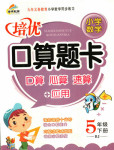
Write an English composition according to the instructions given below in Chinese.
ҪьДкАҙСЎРгАаөДөзКУҪЪДҝОьТэБЛәЬ¶аИЛөДЧўТвБҰЎЈУРөДФЪРЈС§ЙъОӘБЛКөПЦЧФјәөДГчРЗГОкЎС§ІОјУЎЈЗлМёМёДг¶ФХвТ»ПЦПуөД№ЫөгЎЈЎЎ
ЧўТв: 1. МвДҝЧФДвЈ¬°ьАЁТФЙПИ«ІҝТӘөгҝЙККөұ·ў»УЈ¬К№ЙППВОДБ¬№бЎЈ
ЎЎЎЎ 2. ҙККэ: 120ҙКЧуУТЎЈ
Attending TV Shows Does No Good to Young People
ЎЎЎЎNowadays TV shows are popular in China and have attracted many people. Some teenagers even give up their studies to attend these shows in the hope of becoming famous overnight. Some people think these shows provide young people more chance to show talents, while others believe that attending these shows does no good to the young people. As for me, I prefer to the latter opinion.
ЎЎЎЎIt should be admitted that some young people like Li yuchun has stood out from the numerous attendants, but that doesnЎҜt mean attending the shows is a good way to become successful for young people. The following reasons can support my view. Firstly, some young people hunt after fame at whatever cost. Secondly, TV shows can subvert the youngstersЎҜ values. They think attending the shows is a shortcut to the success, so they may despise the way of achieving success by hard work. Finally, if the young people fail in these shows, they will suffer a psychological unbalance.
ЎЎЎЎIn a word, entering for TV shows is not a good way for young people to make a success. I suggest young people should think twice before deciding to attend shows.
ВФ


 ЕаУЕҝЪЛгМвҝЁПөБРҙр°ё
ЕаУЕҝЪЛгМвҝЁПөБРҙр°ё ҝӘРДҝЪЛгМвҝЁПөБРҙр°ё
ҝӘРДҝЪЛгМвҝЁПөБРҙр°ё ҝЪЛгМвҝЁәУұұЙЩДк¶щНҜіц°жЙзПөБРҙр°ё
ҝЪЛгМвҝЁәУұұЙЩДк¶щНҜіц°жЙзПөБРҙр°ё
| Дкј¶ | ёЯЦРҝОіМ | Дкј¶ | іхЦРҝОіМ |
| ёЯТ» | ёЯТ»Гв·СҝОіМНЖјцЈЎ | іхТ» | іхТ»Гв·СҝОіМНЖјцЈЎ |
| ёЯ¶ю | ёЯ¶юГв·СҝОіМНЖјцЈЎ | іх¶ю | іх¶юГв·СҝОіМНЖјцЈЎ |
| ёЯИэ | ёЯИэГв·СҝОіМНЖјцЈЎ | іхИэ | іхИэГв·СҝОіМНЖјцЈЎ |
ҝЖДҝЈәёЯЦРУўУп АҙФҙЈә МвРНЈәФД¶БАнҪв
Many children use the Internet to get useful knowledge and information, and to relax in their free time. But some of them are not using in a good way. Here are some rules to make sure you are safe and have fun on the Internet.
Ўс Make rules for Internet use with your parents. For example, when you can go online, for how long and what activities you can go online.
Ўс DonЎҜt give your password (ГЬВл) to anyone else, and never leak out the following information---your real name, home address, age, school, phone number or other personal information.
Ўс Check with your parents before giving out a credit (РЕУГ) card number.
Ўс Never send a photo of yourself to someone in e-mail unless your parents say itЎҜs OK.
Ўс Check with your parents before going into a chat room. Different chat rooms have different rules and attract different kinds of people. You and your parents must make sure itЎҜs a right place for you.
Ўс Never agree to meet someone you met on the Internet without your parentЎҜs permission (ФКРн). Never meet anyone you met on line alone.
Ўс Always remember that people online may not be who they say they are. Treat everyone online as strangers.
Ўс If something you see or read online makes you uncomfortable, leave the site. Tell a parent or teacher right away.
Ўс Treat other people as youЎҜd like to be treated. Never use bad language.
Ўс RememberЎӘnot everything you read on the Internet is true.
If you want a true friend on the Internet , you can ____________ .
A tell the people what your name is . B meet the people on line alone.
C write an e-mail about yourself . D get your parentЎҜs permission.
ItЎҜs good for children to ________ on the Internet.
A. give password to others B. get useful knowledge and information
C. give out a credit card number D. go into a chat room as theyЎҜd like to
The underlined phrase Ў°leak outЎұ in the third paragraph may mean Ў°________.Ўұ
A. give away B. leave out C. give out D. put away
If your parents donЎҜt agree, never ________.
A. read anything on the Internet
B. relax in your free time
C. have a face-to face meeting with anyone you met online
D. treat other people as youЎҜd like to be treated
This passage is mainly about Ў°________Ўұ.
A. How to use Computers B. Surfing on the Internet
C. Information on the Interne D. Internet Safety Rules
Ійҝҙҙр°ёәНҪвОц>>
ҝЖДҝЈәёЯЦРУўУп АҙФҙЈә МвРНЈәФД¶БАнҪв
Many children use the Internet to get useful knowledge and information, and to relax in their free time. But some of them are not using in a good way. Here are some rules to make sure you are safe and have fun on the Internet.
Ўс Make rules for Internet use with your parents. For example, when you can go online, for how long and what activities you can go online.
Ўс DonЎҜt give your password (ГЬВл) to anyone else, and never leak out the following information---your real name, home address, age, school, phone number or other personal information.
Ўс Check with your parents before giving out a credit (РЕУГ) card number.
Ўс Never send a photo of yourself to someone in e-mail unless your parents say itЎҜs OK.
Ўс Check with your parents before going into a chat room. Different chat rooms have different rules and attract different kinds of people. You and your parents must make sure itЎҜs a right place for you.
Ўс Never agree to meet someone you met on the Internet without your parentЎҜs permission (ФКРн). Never meet anyone you met on line alone.
Ўс Always remember that people online may not be who they say they are. Treat everyone online as strangers.
Ўс If something you see or read online makes you uncomfortable, leave the site. Tell a parent or teacher right away.
Ўс Treat other people as youЎҜd like to be treated. Never use bad language.
Ўс RememberЎӘnot everything you read on the Internet is true.
31. If you want a true friend on the Internet , you can ____________ .
A tell the people what your name is . B meet the people on line alone.
C write an e-mail about yourself . D get your parentЎҜs permission.
32. ItЎҜs good for children to ________ on the Internet.
A. give password to others B. get useful knowledge and information
C. give out a credit card number D. go into a chat room as theyЎҜd like to
33. The underlined phrase Ў°leak outЎұ in the third paragraph may mean Ў°________.Ўұ
A. give away B. leave out C. give out D. put away
34. If your parents donЎҜt agree, never ________.
A. read anything on the Internet
B. relax in your free time
C. have a face-to face meeting with anyone you met online
D. treat other people as youЎҜd like to be treated
35. This passage is mainly about Ў°________Ўұ.
A. How to use Computers B. Surfing on the Internet
C. Information on the Interne D. Internet Safety Rules
Ійҝҙҙр°ёәНҪвОц>>
ҝЖДҝЈәёЯЦРУўУп АҙФҙЈә2014ҪмёКЛаОдНюөЪБщЦРС§ёЯИэөЪТ»ҙОФВҝјУўУпҫнЈЁҪвОц°жЈ© МвРНЈәРЕПўЖҘЕд
ёщҫЭ¶МОДДЪИЭ,ҙУ¶МОДәуөДСЎПоЦРСЎіцДЬМоИлҝХ°ЧҙҰөДЧојССЎПо. СЎПоЦРУРБҪПоОӘ¶аУаСЎПо.
WeЎҜd better develop our interest in English at the beginning of our study. 1. We may feel good when we can say something simple in English.
2. So we must make some plans before study. And we should certainly carry out these plans in our study.
3. Our notes are much thinner than the books so that we can learn them by heart easily and can often review and read them. We may also record our notes on tapes so as to listen to them easily.
Reading a newspaper is the best thing to improve your English. 4. It will help you keep in touch with a lot of subjects in English.
5. Learn by heart the whole sentences and the phrases that contain the new words so that we may know how to use the words.
If time permits (ФКРн), we may read a mini Chinese-English dictionary carefully from cover to cover, which may help us widen our sight and master (ХЖОХ) knowledge in all ways.
A. Read a little from a newspaper every day.
B. DonЎҜt read books without making notes.
C. Carefully write an e-mail in English.
D. ItЎҜs easy to develop an interest in English study.
E. The more, the better.
F. Plans are always very necessary.
G. Never just memorize (јЗЧЎ) single English words.
Ійҝҙҙр°ёәНҪвОц>>
ҝЖДҝЈәёЯЦРУўУп АҙФҙЈә2015ҪмФЖДПУсПӘТ»ЦРёЯТ»ПВС§ЖЪЖЪЦРҝјКФУўУпҫнЈЁҪвОц°жЈ© МвРНЈәФД¶БАнҪв
Backpacking in America
Hi. My friend and I are two engineering students in New York. We are planning a backpacking trip in America. We are friendly, easy-going and adventurous. We are looking for friendly people to go with us along our wild adventurous journey. We are trying to make this trip as cheap as possible, as the cheaper it gets the more excitement it will bring to our journey. So please email us at Stephen302@gmail.com.
Free French Conversation
Hi. I am an American girl. My native language is English and I have a very good knowledge of French. I would like to meet a girl from China to practice speaking French. I would speak slowly so that you can understand me better and learn French more easily. You can teach me Chinese in return. My email is Janet123@hotmail.com. I look forward to hearing from you soon.
Private English Teacher
An English teacher offers private lessons. I have over 5 yearsЎҜ experience in teaching English. I correct mistakes (grammar, pronunciation), and also teach reading and writing. I always do my best to encourage students to use English and develop their language skills. $10 for a lesson of 40 minutes, and $15 for a lesson of up to 70 minutes. Please email me if you need more information. Email: David305@gmail.com.
Room Available in Washington
I am Lydia from America and looking for a clean and nice female room-mate to live with. It will be available from January 1st, 2012 to August 31st, 2012. The room is large enough for the two of us. It is close to bars, restaurants, and shops and it is within 10 minutes to walk to the bus station. The room price is $460/month, including electricity, hot water, and the Internet! Email me at Lydia606@hotmail.com to set up a time to come and have a look.
1.To get close to nature in a group, you will most probably send your e-mail to_____.
AЈ®Lydia606@hotmail.com
BЈ®David305@gmail.com
CЈ®Janet123 @hotmail.com
DЈ®Stephen302@gmail.com
2.How much will a student pay a month if he goes to the 40 minutesЎҜ class twice and the 70 minutesЎҜ once every week?
AЈ®$35 BЈ®$100 CЈ®$140 DЈ®$160
3.If you are allowed to move into the room for rent, you _____.
AЈ®can get a free Internet connection every day
BЈ®can spend ten minutes walking to school
CЈ®will share the room with a female roommate
DЈ®will find the restaurants across the bus station
4.If you are a Chinese girl who wants to practice French, you can write an e-mail to _____.
AЈ®Stephen302@gmail.com
BЈ®David305@gmail.com
CЈ®Lydia606@hotmail.com
DЈ®Janet123 @hotmail.com
Ійҝҙҙр°ёәНҪвОц>>
ҝЖДҝЈәёЯЦРУўУп АҙФҙЈә2013Ҫм¶И№г¶«»ЭСфёЯј¶ЦРС§ёЯТ»өЪТ»С§ЖЪЖЪД©УўУпҫнЈЁ¶юЈ© МвРНЈәФД¶БАнҪв
Many children use the Internet to get useful knowledge and information, and to relax in their free time. But some of them are not using in a good way. Here are some rules to make sure you are safe and have fun on the Internet.
Ўс Make rules for Internet use with your parents. For example, when you can go online, for how long and what activities you can go online.
Ўс DonЎҜt give your password (ГЬВл) to anyone else, and never leak out the following information---your real name, home address, age, school, phone number or other personal information.
Ўс Check with your parents before giving out a credit (РЕУГ) card number.
Ўс Never send a photo of yourself to someone in e-mail unless your parents say itЎҜs OK.
Ўс Check with your parents before going into a chat room. Different chat rooms have different rules and attract different kinds of people. You and your parents must make sure itЎҜs a right place for you.
Ўс Never agree to meet someone you met on the Internet without your parentЎҜs permission (ФКРн). Never meet anyone you met on line alone.
Ўс Always remember that people online may not be who they say they are. Treat everyone online as strangers.
Ўс If something you see or read online makes you uncomfortable, leave the site. Tell a parent or teacher right away.
Ўс Treat other people as youЎҜd like to be treated. Never use bad language.
Ўс RememberЎӘnot everything you read on the Internet is true.
1. If you want a true friend on the Internet , you can ____________ .
A tell the people what your name is . B meet the people on line alone.
C write an e-mail about yourself . D get your parentЎҜs permission.
2.ItЎҜs good for children to ________ on the Internet.
A. give password to others B. get useful knowledge and information
C. give out a credit card number D. go into a chat room as theyЎҜd like to
3. The underlined phrase Ў°leak outЎұ in the third paragraph may mean Ў°________.Ўұ
A. give away B. leave out C. give out D. put away
4.If your parents donЎҜt agree, never ________.
A. read anything on the Internet
B. relax in your free time
C. have a face-to face meeting with anyone you met online
D. treat other people as youЎҜd like to be treated
5.This passage is mainly about Ў°________Ўұ.
A. How to use Computers B. Surfing on the Internet
C. Information on the Interne D. Internet Safety Rules
Ійҝҙҙр°ёәНҪвОц>>
°Щ¶ИЦВРЕ - Б·П°ІбБРұн - КФМвБРұн
әюұұКЎ»ҘБӘНшОҘ·ЁәНІ»БјРЕПўҫЩұЁЖҪМЁ | НшЙПУРәҰРЕПўҫЩұЁЧЁЗш | өзРЕХ©ЖӯҫЩұЁЧЁЗш | ЙжАъК·РйОЮЦчТеУРәҰРЕПўҫЩұЁЧЁЗш | ЙжЖуЗЦИЁҫЩұЁЧЁЗш
ОҘ·ЁәНІ»БјРЕПўҫЩұЁөз»°Јә027-86699610 ҫЩұЁУКПдЈә58377363@163.com